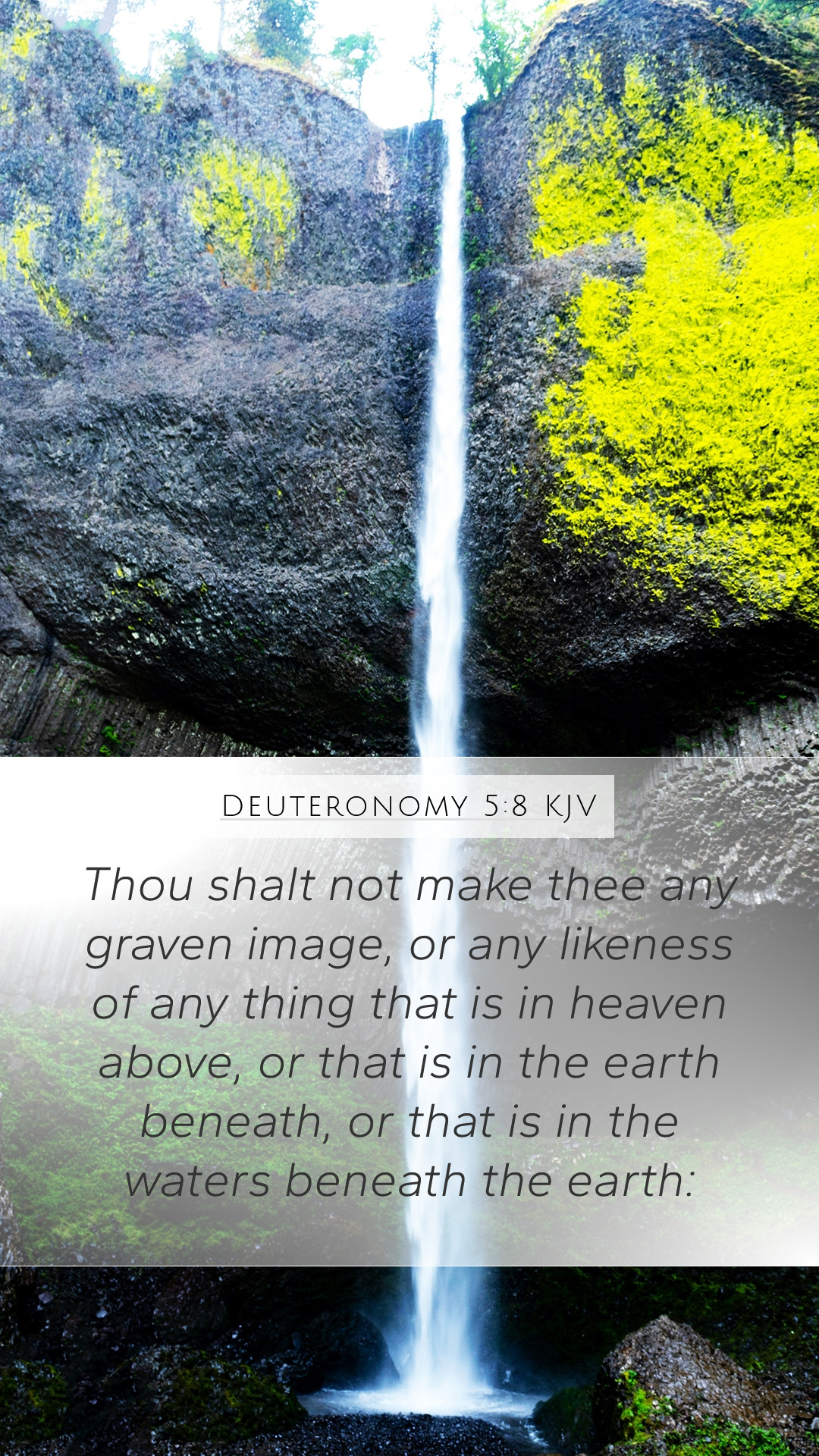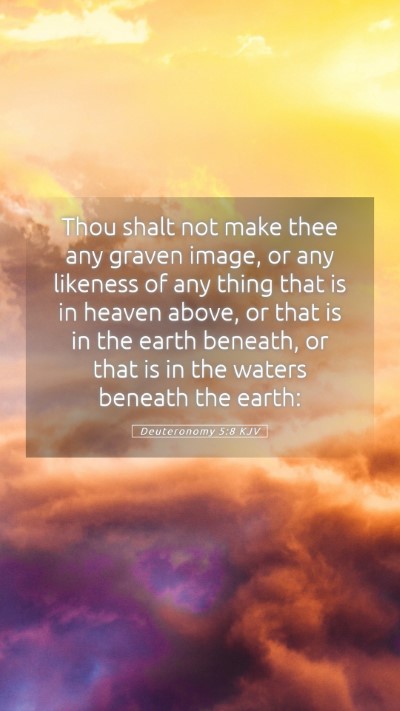Bible Verse Meaning: Deuteronomy 5:8
Deuteronomy 5:8 states: "You shall not make for yourself a carved image, or any likeness of anything that is in heaven above, or that is in the earth beneath, or that is in the water under the earth." This verse is part of the Ten Commandments and emphasizes the prohibition of idolatry in the Israelite community.
Summary of Bible Verse Interpretations
This command specifically warns against the making of idols or images for the purpose of worship. Understanding this verse involves grasping the broader context of God's covenant with Israel and the foundational role of worshiping God alone.
Insights from Public Domain Commentaries
- Matthew Henry's Commentary:
Henry emphasizes that the essence of this command is to guard against the corruption of true worship. He points out that man is prone to create tangible representations of the divine, which ultimately devalues the majesty and mystery of God. It warns against the danger of reducing God to the limitations of human artistry.
- Albert Barnes' Notes:
Barnes interprets this directive as a call to keep the divine presence sacred and untainted. He notes that the carved images could lead to false worship and a misrepresentation of God’s nature. Barnes urges readers to seek a relationship with God that is based on spirit and truth rather than on physical symbols.
- Adam Clarke's Commentary:
Clarke delves into the historical context, explaining that this command was particularly relevant in a time when surrounding nations practiced idol worship. He highlights the importance of divine exclusivity—God's sovereignty necessitates that no other images or deities contending for worship should exist among His people.
Understanding Scripture: The Importance of Context
To fully appreciate the meaning of Deuteronomy 5:8, one must consider its placement within the broader context of the covenant laws given to Israel. The emphasis on monotheism is central not only to the Ten Commandments but also to the entire relationship between God and His chosen people.
Application of Deuteronomy 5:8 in Daily Life
In contemporary times, while physical idols may not be a common practice, the underlying principle remains crucial. People may create modern "idols" in the form of materialism or placing importance on other pursuits over their relationship with God. This verse serves as a reminder to evaluate our priorities and the focus of our worship.
Historical Context of the Command
This command was delivered at a pivotal moment in Israel's history, after escaping Egyptian bondage and before entering the Promised Land. It was essential for the nation to establish a distinct identity centered on the worship of the one true God, separated from the practices of their neighbors.
Related Bible Cross References
- Exodus 20:4: "You shall not make for yourself a carved image." - A direct parallel to Deuteronomy 5:8.
- Isaiah 44:9-20: This passage contrasts the futility of idol-making with the living God.
- Romans 1:22-23: Paul discusses how people exchanged glory of God for images made to look like mortal man.
Further Study Suggestions
For those interested in a deeper understanding of Bible verse meanings, consider engaging in:
- Online Bible study courses focused on understanding the Old Testament.
- Bible study groups that emphasize historical context and application in modern life.
- Bible study guides that cover themes of idolatry and divine sovereignty.
Conclusion: The Significance of Deuteronomy 5:8
In conclusion, Deuteronomy 5:8 serves as a profound reminder of the nature of worship and the character of God. As believers today, reflecting on this scripture is essential in recognizing potential distractions that may lead us away from a pure devotion to the Creator. By understanding scripture and applying its principles, we can foster a genuine relationship grounded in faith and truth.


